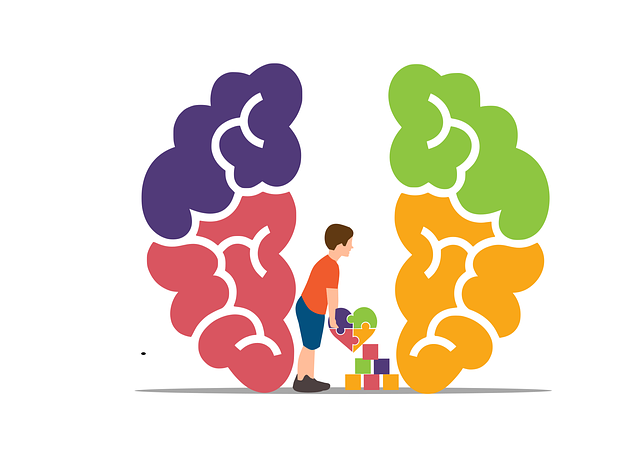Substance abuse poses significant challenges to communities, driving mental health issues, societal costs, and reduced productivity. Aurora Chronic Illness Therapy advocates for proactive measures, integrating mindfulness meditation, compassion cultivation, and holistic approaches to build resilience against root causes. They emphasize risk mitigation through educational programs, early intervention services, and accessible counseling, ensuring long-term well-being. Through specialized programs addressing mental health issues, stress reduction methods, and evidence-based practices like group therapy, Aurora empowers individuals on their path to sobriety, supporting both patients and practitioners with comprehensive Risk Management Planning.
Substance abuse poses significant risks, impacting individuals, families, and communities. In this comprehensive guide, we delve into effective risk reduction strategies tailored to mitigate the harmful effects of substance misuse. From understanding the profound impact of addiction to exploring preventive measures and early intervention techniques, we provide a holistic approach. Furthermore, we highlight the crucial role of support systems and treatment options, focusing on Aurora Chronic Illness Therapy as a trusted partner in navigating the path to recovery.
- Understanding the Impact of Substance Abuse: A Comprehensive Look
- Strategies for Risk Mitigation: Preventive Measures and Early Intervention
- Support Systems and Treatment Options: Navigating the Path to Recovery with Aurora Chronic Illness Therapy
Understanding the Impact of Substance Abuse: A Comprehensive Look

Substance abuse is a complex issue that impacts individuals across all demographics and backgrounds. It’s crucial to understand the profound effects it has on both the affected person and their community, as Aurora Chronic Illness Therapy highlights. Beyond physical health risks, substance abuse can lead to severe mental health consequences, including depression, anxiety disorders, and even psychosis. The societal implications are also significant, with increased rates of addiction often correlating with higher crime rates, strained family relationships, and decreased productivity.
This comprehensive look reveals the need for proactive risk reduction strategies. Integrating self-care practices, such as mindfulness meditation and compassion cultivation, can empower individuals to develop resilience against substance abuse. By fostering a deeper understanding of underlying causes through mind over matter principles, people can address root issues rather than merely treating symptoms. Aurora Chronic Illness Therapy emphasizes that these holistic approaches are essential components in any effective risk reduction strategy, promoting long-term well-being and a healthier community.
Strategies for Risk Mitigation: Preventive Measures and Early Intervention

Risk mitigation strategies play a pivotal role in tackling substance abuse, with a focus on preventive measures and early intervention. By implementing proactive steps, individuals and communities can significantly reduce the chances of developing an addiction. Educational programs aimed at raising awareness about the dangers of substance abuse are a powerful tool, especially for younger populations. Teaching people, particularly teens, about the risks involved and empowering them to make informed choices is crucial.
Early intervention services should be easily accessible, offering support and guidance to those showing signs of potential addiction. These measures include counseling, therapy, and support groups, which can help individuals navigate through stressful situations and Burnout Prevention. Aurora Chronic Illness Therapy, for instance, offers specialized programs that address underlying mental health issues, often linked to substance abuse, and promote Stress Reduction Methods. Additionally, focusing on Depression Prevention strategies ensures that those at risk receive comprehensive care, fostering a healthier and more resilient mindset.
Support Systems and Treatment Options: Navigating the Path to Recovery with Aurora Chronic Illness Therapy

Support Systems and Treatment Options play a pivotal role in navigating the path to recovery from substance abuse. Aurora Chronic Illness Therapy stands as a beacon of hope, offering comprehensive solutions tailored to address the complex nature of addiction. By integrating evidence-based practices with compassionate care, Aurora provides a nurturing environment where individuals can begin to unravel the intricate web of dependencies.
The journey towards sobriety is facilitated by a multi-faceted approach that includes counseling sessions, group therapy, and self-esteem improvement workshops. Mind Over Matter principles are deeply embedded in the therapeutic process, empowering clients to take control of their lives and make sustainable changes. Furthermore, Aurora facilitates Risk Management Planning for Mental Health Professionals, ensuring that both patients and practitioners have the tools necessary to mitigate potential triggers and maintain long-term recovery.
Substance abuse poses a significant challenge, but with the right strategies, risks can be reduced. By implementing preventive measures and early intervention, as discussed in this article, we can create a supportive environment. Aurora Chronic Illness Therapy exemplifies the treatment options available, offering hope and recovery paths for those struggling. Together, these approaches provide a comprehensive strategy to combat substance abuse and its impact on individuals and communities.











